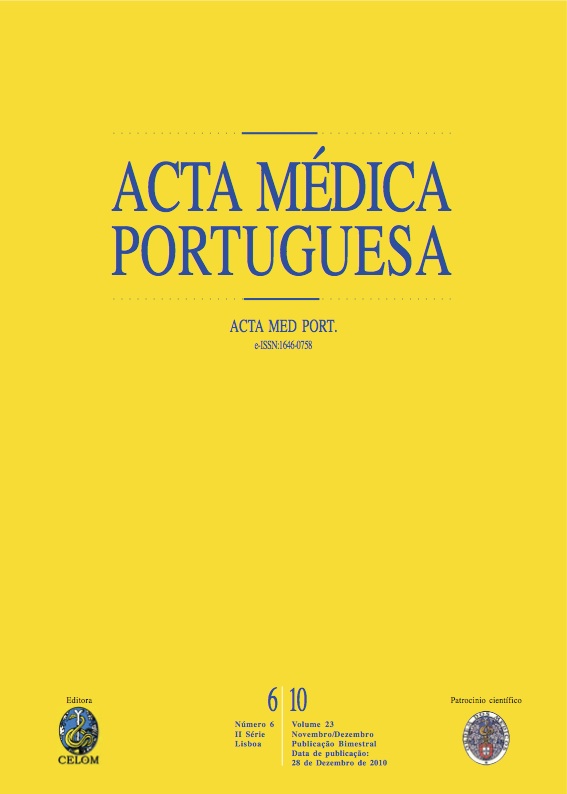Transsexualidade: vivência do processo de transição no contexto dos serviços de saúde.
DOI:
https://doi.org/10.20344/amp.749Resumo
Genital reconstruction surgery and hormonal treatment for transsexuals are performed in health care services following a long and complex evaluation process generally based on the guidelines proposed by the World Professional Association for Transgender Health. Though important to ensure these individuals' health and well-being, such procedures may conflict with their reality, raising obstacles not only for the candidates but also for professionals who deal with them. The reality of this population has been the focus of recent studies, whose results are to be considered in the new version (the seventh) of the procedures, currently under elaboration. In Portugal, the experience transsexuals have of their transition process, and of that process within health care services is still unknown. Yet, integrating that experience with these guidelines may contribute to better adapting procedures to their target population, decreasing obstacles facing the parties involved and improving available services. Seeking to bridge this gap and to contribute to the increased integration of population's needs and professionals' procedures, the current work examines transsexuals' experiences of their transition process, highlighting aspects that constitute difficulties to it or else facilitate it. The study is based on in-depth interviews with biological male transsexuals who request hormonal and surgical interventions to acquire a female physiology. Data were content-analyzed in the software program NUD*IST. The analysis reveals several themes associated with positive experiences in the sample's transition process (e.g., presence and accessibility of services dealing with this issue, presence of guidelines, setting the surgery date), negative experiences (e.g., process duration and uncertainties, professional treatment received), and experiences which cut across both (e.g., quality and variety of available services), as well as some paradoxes. In general, the interviewees defend the existence of non-rigid guidelines used in transgender evaluation, as well as flexibility in the treatment offered by professionals, based on knowledge and respect for each case and on updated information on this domain. Some procedures that may contribute to a more effective handling of the transition process are outlined based on identified themes. The articulation of diverse contexts and services (medical, legal, professional) is necessary for the improved success of the transition.Downloads
Downloads
Como Citar
Edição
Secção
Licença
Todos os artigos publicados na AMP são de acesso aberto e cumprem os requisitos das agências de financiamento ou instituições académicas. Relativamente à utilização por terceiros a AMP rege-se pelos termos da licença Creative Commons ‘Atribuição – Uso Não-Comercial – (CC-BY-NC)’.
É da responsabilidade do autor obter permissão para reproduzir figuras, tabelas, etc., de outras publicações. Após a aceitação de um artigo, os autores serão convidados a preencher uma “Declaração de Responsabilidade Autoral e Partilha de Direitos de Autor “(http://www.actamedicaportuguesa.com/info/AMP-NormasPublicacao.pdf) e a “Declaração de Potenciais Conflitos de Interesse” (http://www.icmje.org/conflicts-of-interest) do ICMJE. Será enviado um e-mail ao autor correspondente, confirmando a receção do manuscrito.
Após a publicação, os autores ficam autorizados a disponibilizar os seus artigos em repositórios das suas instituições de origem, desde que mencionem sempre onde foram publicados e de acordo com a licença Creative Commons









